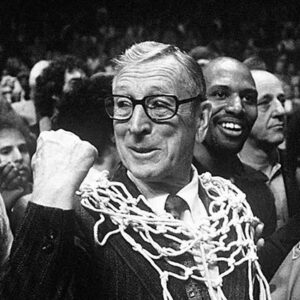Chapter 10 of potential hindrances to our creative development cont…
**00X: If we sell work, we are good and successful artists.**
As we continue to splish-splash in the mucky territory of this presupposition, I would like to go just a little further into the conscious intention of building a lucrative career out of our creative expression and how this could invite the awareness/pressure of competition that may or may not be a drag.
Up until this point, I have not addressed ‘Art competitions’ specifically and will continue to hold off on that. For now, I’ll be drawing attention to some of the possible shadow and light influence of competition in the business of selling our work.
I can’t help thinking back on Chapter 4 and the dithering that builds when we try to be or make a preconceived something through a bunch of effort. When we are focussed on trying to be successful there’s usually a bit of fear behind it— like if we follow someone else’s path (or what’s already been accepted) we don’t need to pass through the confusion necessary to foster trust in our individual abilities. With an outward intention of success, it’s easy to get lost in the mechanism of our minds— scheming, marketing, manipulating, conning, competing against others, adhering to general (conditioned) tastes, etc. This can be motivating or exhausting and often leads to homogenized expression.
As I’ve said before, there isn’t anything wrong with imitating others—especially when we’re super into it and can make a living at it. I only want to, yet again, expose the possibility of losing connection with the high frequency flow generated by our creative self when we scatter our attention outwardly. For instance, if our central drive is to make money, we might get caught up in a typical attitude of competition that is divisive and based on conflict. It takes a substantial amount of energy to compete against someone— to be constantly thinking how we might outwit, outperform or beat them somehow (while worrying if we’re good enough). We could be channelling all that energy toward doing what we love and facing any inner fears or resistance that may be in the way of our expansion. Competition can be cool when it goes beyond winners and losers and offers a chance for everyone to up-level.
Now this might sound like, get rid of awards! or everyone should receive an award! but that’s not what I mean. I am talking about a more evolved attitude that sees the tremendous possibility for growth that competition offers in allowing us to meet others who are exploring their highest potential (who we might even consider to be a rival)— where there is a good chance our unknown and untapped abilities will be drawn out by the other. Everyone’s performance is optimized when, instead of trying to crush or be better than each other, we do everything we can to support each other’s actualization; there is a spirit of unity.

John Wooden. (source unknown)
Would you believe in a coach who never talked about winning with his athletes? Legendary UCLA basketball coach John Wooden is one of the few who have been inducted into the Hall of Fame as a player and a coach. He has racked up Ten NCAA Men’s Basketball Championships, Seven NCAA championships in consecutive years, most appearances in the Final Four at 16, most consecutive victories at 88 etc. and, according to his players, he never mentioned winning or any stats. Instead, he guided his players to perform to their best ability with wisdom like:
Don’t try to be better than anyone else— we can always learn from other people.
Always try to be your own best and don’t focus on that which we cannot control (or they will effect what we can control).
Peace of mind and self-satisfaction comes from knowing we’ve done the best we can.
Reputation is what we are perceived to be. Character is what we really are.
We can lose when we’ve outscored someone in a game and we can win when we’ve been outscored.
Results will be what they should be not necessarily what we want them to be.
This correlation between art and sport may seem like a stretch but, in my experience, an art institution or market is just another playing field for a limiting competitive vibe. For instance, several of my classmates would get frustrated when they offered feedback to someone else during a critique but then that person never gave them any feedback in return. They would keep track of this so as not to offer any support to those silent classmates in the future (the I’m not gonna help you if you don’t help me thing). This is silly when we consider that contemplating a work of art and then describing our experience of it is a chance to challenge the limits of our thinking. In this sense, when I support another I simultaneously support myself without any need to keep score.
So if we’ve decided to make money through our creative expression and we’re feeling contracted or drained by the pressure to be competitive, it may be worth contemplating our attitude and the direction of our energy. It wouldn’t hurt to ask ourselves: Am I more fixated on results? Am I worrying about being better than others? Am I forgetting why I want to engage my creative impulses and manifest something to share with others?
Don’t ask yourself what the world needs; ask yourself what makes you come alive. And then go and do that. Because what the world needs is people who have come alive.
~HOWARD THURMAN
[Title gif: source unknown]
*Disclaimer: No copyright infringement intended. I do my best to track down original sources. All rights and credits reserved to respective owner(s). Email me for credits/removal.
